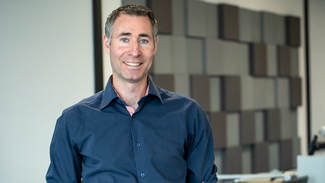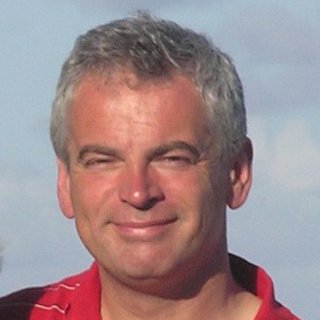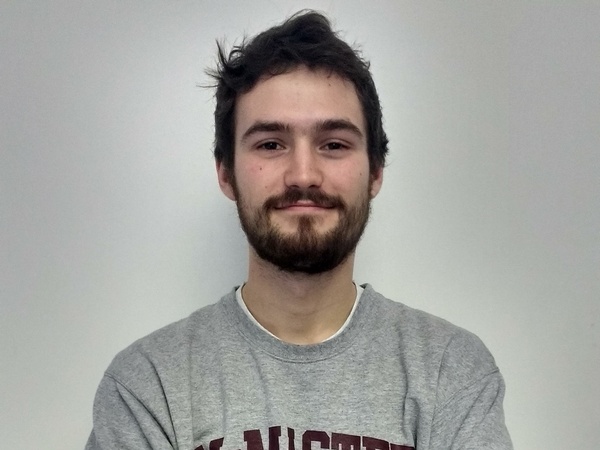All posts by iaaadmin
IAA Zoom Meeting – Dr John Regan – “Black Holes Across Cosmic Time”
IAA Lecture Weds 2nd Feb – Dr John Regan
“Black Holes Across Cosmic Time”
Abstract:
The last decade has led to an unprecedented in advance in our understanding of black hole population demographics. We are, like never before, in a golden age of black hole observations. The breakthroughs in observations of black holes have been matched to a large extent by similar breakthroughs in our theoretical understanding of black hole demographics.
In this talk I will discuss the initial predictions of black holes stemming from General Relativity moving on to discuss recent detections of black holes through gravitational waves and with the Event Horizon Telescope. I’ll finish by discussing some outstanding questions in the field.
Biog:
PhD Institute of Astronomy at the University of Cambridge
Postdoctoral Research: University of Helsinki, Institute of Computational Cosmology at Durham University
Postdoctoral Fellowships: Marie Sklodowska-Curie Fellowship (2016-2018) at DCU,Royal Society
Fellowship (2020 – present) Maynooth University
Paul Evans is inviting you to a scheduled Zoom meeting.
Topic: IAA Zoom Meeting
Time: Feb 2, 2022 07:15 PM London
Join Zoom Meeting
https://us02web.zoom.us/j/84822534019?pwd=UHFscTFDQlBETFc1VVo5UmxJRXdoQT09
Meeting ID: 848 2253 4019
Passcode: 213472
The room will open around 19:15 to allow for a prompt start
This talk will also be Simulcast on our YouTube Channel
IAA Lecture Weds 19th Jan 1930 – Prof Tom Ray (DIAS)
“The Webb: Well Worth Waiting For”
Abstract:
On Christmas Day, the Webb was launched from Kourou in South America. It is currently on its way to a special orbit well beyond the Moon having undergone a number of very complex manoeuvres.
After giving everyone an update, and an explanation of what to expect over the next few months, I will briefly introduce its four main instruments and describe how the Webb can help us understand the birth of the first stars in the Universe and how stars and planets, like our own Solar System, form.
Bio:
Tom Ray is Director of the School of Cosmic Physics at the Dublin Institute for Advanced Studies.
He began his career in Radio Astronomy at Jodrell Bank before working at a number of institutions including the University of Sussex and the Max Planck Institute for Astronomy in Heidelberg. His primary interest is in star and planet formation.
Tom is Co-Principal Investigator of the Mid-Infrared Instrument on the James Webb Space Telescope and Co-Principal Investigator on the Ariel Mission to explore exoplanets. In addition he is building a new type of super-cooled detector, known as a Microwave Kinetic Inductance Detector, for optical/near-infrared astronomy.
Tom’s other interests include ancient astronomical sites, such as Newgrange, and the history of Irish astronomy.
In his spare time he sails.
Paul Evans is inviting you to a scheduled Zoom meeting.
Topic: IAA Zoom Meeting
Time: Jan 19, 2022 07:15 PM London
Join Zoom Meeting
https://us02web.zoom.us/j/4222002106
Meeting ID: 422 200 2106
The room will open around 19:15 to allow for a prompt start
This talk will also be Simulcast on our YouTube Channel
IAA Zoom Meeting 5th Jan 2022 – Prof Antonio Martin-Carillo
The Sky in January 2022
IAA Lecture, Wed 5th January, 7.30 pM – Prof Antonio Martin Carillo
Comets and their tales
Comets are very much in the news, with the recent visit by Comet Neowise. They have a much wider significance in astronomy than just providing spectacular sights in the sky, as their origin, development and composition tell us a great deal about the solar system as a whole.
Biography
Antonio Martin-Carrillo is an UCD Ad Astra fellow/Assistant Professor in the School of Physics. He graduated with a BSc and MSc in Physics with Astronomy from University Complutense Madrid. Following 2 years working at the European Space Agency as part of the XMM-Newton space observatory calibration team, he moved to UCD where he completed his PhD investigating gamma-ray bursts (GRBs) and pulsars.
He is currently a member of the Space Science Group studying the transient Universe and in particular the prompt and afterglow emission of GRBs using high-energy space observatories and ground-based telescopes such as UCD’s Watcher robotic telescope.
His research also includes the development of software tools for advanced data analysis. As such he is an ambassador and collaborator on the Astropy project aimed at providing a wide range of software packages written in Python for use in astronomy. He is also a member of the INTEGRAL multi-messenger group searching for gamma-ray counterparts to gravitational waves, neutrino events and other transient sources; the ATHENA X-ray space observatory, an ESA large mission scheduled to launch in 2028, and the THESEUS space telescope, currently in its study phase with ESA.
Paul Evans is inviting you to a scheduled Zoom meeting.
Topic: IAA Zoom Meeting
Time: Jan 5, 2022 07:15 PM London
Join Zoom Meeting
https://us02web.zoom.us/j/86772024897?pwd=YzhURHhRTjJheE5QZnlBREl4dDZmUT09
Meeting ID: 867 7202 4897
Passcode: 132894
The room will open around 19:15 to allow for a prompt start
This talk will also be Simulcast on our YouTube Channel
IAA Lecture 8th December 2021 – Dr Jamie Robinson
The Sky in December 2021
IAA Zoom Meeting Weds Dec 8th – Dr Jamie Robinson
“Asteroids: the key to unlocking the secrets of the Solar System ”
Synopsis
Asteroids are the small bodies of the Solar System which represent the leftovers of planet formation. They can be found throughout the Solar system, mainly in the rocky asteroid belt between the orbits of Mars and Jupiter and the more icy region beyond the orbit of Neptune.
By considering the physical properties of these bodies and how they came to be on their present orbits one can investigate the various processes of Solar System formation. Asteroids provide clues as to how the first solid bodies grew out of the disk of gas and dust from which the Sun was born, and how these small bodies then grew into the major planets. Furthermore their distribution throughout space tells us how the planets would have migrated from their birth locations in the early Solar System, scattering these asteroids as they went.
The asteroids are an invaluable key to unlocking the secrets of the Solar System, helping to explain how planets such as the Earth came to be. They are both the building blocks of our planet from which life developed and also a threat to life in terms of their continuing collisions with the Earth. As such they are fundamentally linked to understanding our place in the Universe and are an extremely fruitful subject of study.
Bio:
James (Jamie) Robinson
2011 – 2016: MPhys Durham University (year abroad at McMaster University 2013 – 2014)
2016 – 2020: PhD at Queen’s University Belfast on The Origin and Evolution of Transneptunian Binaries. 2017 LSST Data Science Fellow
2020 – 2021: Postdoc at QUB, ATLAS asteroid science
2021 – present: Postdoc at University of Edinburgh, LSST software tools
My research has covered a wide range of topics within the realm of small Solar System bodies. These objects represent the leftovers of planet formation and have a diverse range of physical and orbital properties. My research makes use of intensive computations and data science techniques to simulate and investigate the properties of small Solar System bodies. Studying such objects provides a valuable constraint on how the Solar System formed and gives us insight into how the Earth, and life, came to be.
For my PhD I conducted intensive numerical simulations to study how a binary pair of planetesimals can form through the collapse of a cloud of pebbles in the outer reaches of the early Solar System. I also considered how such binaries evolved under the effects of planetary migration which is believed to produce the Solar System of today.
I then took up a postdoctoral position at QUB which brought my research into the inner Solar System. I have utilised the large database of photometry from the ATLAS survey to study the surface properties of asteroids. The Asteroid Terrestrial-impact Last Alert System is one of several wide field surveys that scan the sky discovering transient phenomena and I assist in efforts to analyse the data in real time searching for possible Earth impactors.
I have recently started a postdoc at the University of Edinburgh where I will focus on developing software tools for the next big wide field survey, the Legacy Survey of Space and Time. LSST will be a revolution in Solar System science, discovering and characterising an order of magnitude more objects than previously known.
Paul Evans is inviting you to a scheduled Zoom meeting.
Topic: IAA Zoom Meeting
Time: Dec 8, 2021 07:15 PM London
Join Zoom Meeting
https://us02web.zoom.us/j/85927713853?pwd=QzNIQmU5bldla3hVcEQ2YmhFZlZnUT09
Meeting ID: 859 2771 3853
Passcode: 796033
The room will open around 19:15 to allow for a prompt start
This talk will also be Simulcast on our YouTube Channel




